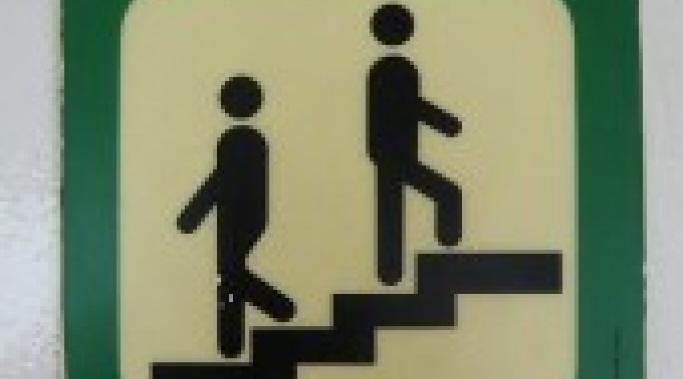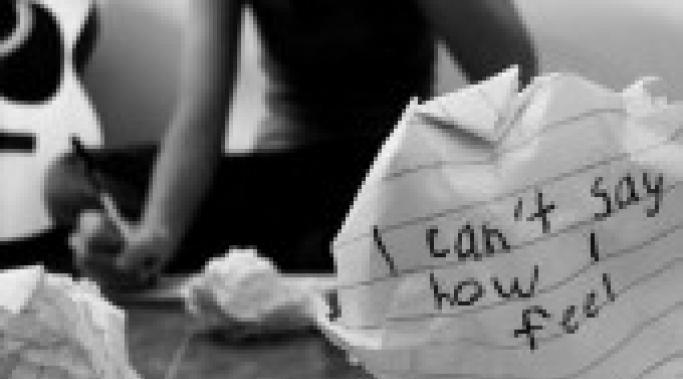For a very long time I struggled with severe and crippling anxiety. At one point, around the age of fifteen, I could not leave my home. Literally. Anything outside of my home, my four-walled room, was terrifying. School--impossible. For as much as I tried to emulate my siblings, to smile and laugh, to have friends and go to classes, to come home and talk to my parents-I simply could not.
My heart would race when stepping outside of the door; my legs would wobble, unsteady, unsure (The Silencing of Agoraphobia).
Lifestyle Changes
Let's pull out the good old thesaurus to attempt to define a feeling that is so prominent when you are diagnosed with mental illness:
> Singleness
>Alienation
>Isolation
Now, I usually pepper these definitions with a large amount of sarcasm because, usually, they are bloody ridiculous. Having said this, the above definitions make sense on my end. Mental Illness has alienated me, isolated me, and made me feel singular--not the same as others. That's what I want to explore in this blog: mental illness can make us feel terribly lonely and in order to recover we need to work to understand that while mental illness can make us feel isolated, we can move past it.
Mental Illness is a Lonely Disease
The diagnosis of mental illness is akin to being hit by a bulldozer. But you survive and work to carry on--to recover. It can be hard, while in the midst of things, to forget the people who have stood by our side. The people who we might have hurt when we were sick.
My Experience
I enjoy reading posts that mention the authors personal experience--it makes it real. It makes the person real. So, let me summarize twenty-six years:
Diagnosed at 12, I have been blessed with a family who never left my side, despite mental health professionals telling them to put me 'in a home.' I am their child and they could not fathom doing this. As I grew up and addiction engulfed my life, they pulled away out of necessity, quite literally waiting for me to die. I have two siblings and they needed my parents just as much as I did.
They could have given up. Many parent's do...but they waited. Waited for me to hit bottom, and bottom I did, before reclaiming my life. When I was sick, I did not understand the sacrifices they made. I did not recognize the effect my illness had on their lives, my siblings--the family dynamic. I felt angry. Alone. Unloved. Like the black sheep.
As I became better, I realized that I owe much of my life, the fact my heart is beating as I write these words, to them. I am able to express my feelings to them now, but not without guilt.
Working Through the Guilt and Embracing Those Who Love You
I am certain many people can relate to this topic when connected to mental illness. In my life, feeling disconnected from people occurred at times that defined large changes in my life--when coming to terms with diagnosis, working to recover, and finally to reach a level of acceptance.
Before Diagnosis
Analyzing "Talk"
Some people like chocolate and some people like going to movies. Me, well, I like my thesaurus. I like things like this: certain pens, books, a 5,000 page book full of words that connect to words that mean, pretty much, the same damn thing. So, fueled by caffeine, I look up the word talk (and here is to hoping a few you like words, sort of), and am confronted with a whole slew of them.
Usually, and with any luck, life moves smoothly. When you have a mental illness, the road is probably a little bumpier than you would like, but certain things remain the same. The time you wake-up and the time you fall asleep. The food you like to eat and the food you avoid. The people in your life who mean the most. The music you like and the hobbies you have. It is these things, little things, that make life easier, enjoyable.
Life Does Not Always Remain Comfortable
When you are diagnosed with a mental illness, your first reaction is probably fear. Those who love you also might feel fear. After all, mental illness is stigmatized, and certainly not something anyone wants to live with. But we can, and we do. Successfully.
Defining Fear
Depression. I hate the word. Also, not in my repertoire of lovely words: consistent low mood. melancholy, apathetic, stuck, frightened, darkness, sadness. Lovely words, perhaps a thesaurus would give me two hundred more. But that is not the topic of this blog.
Defining Depression
Your psychiatrist can define depression, but in a clinical way. The language used cannot describe how a depressed person feels. Instead, person must exhibit specific symptoms: change in sleep patters, appetite, a lack of interest in previously enjoyed activities, isolation, sadness. When I tell my psychiatrist I am depressed she asks me how I feel. Often, if you are experiencing depression, it is hard to articulate your feelings. Sometimes, I tell her I do not know how I feel. I feel sad. I don't think I felt this way a couple months ago. But it's confusing. Working to compare how you felt before you started to feel down.
It seems unfair, to say the least, that when we are trying to recover from mental illness, our body can become ill as well. For a long time, I did not connect physical illness to mental illness. I believed the body and mind were separate.
I often found myself in my doctor's office. I told him I had migraines on a daily basis. He asked me if this had always been the case, and I told him no, just every few months. I get hit with serious sinus infections a few times a year, and curse my immune system. I am doing everything I should: eating healthy, exercising, taking my medication, and some vitamin's throw in for fun.
It took a long time to put the pieces together: mental illness causes unwanted physical symptoms, and not symptoms exclusively from psychiatric medication.
Part of mental health self-care involves identifying potential triggers and avoiding them or, at the very least, preparing for the impact they may have on your life. Those of us who have a mental illness have a harder time adjusting to life changes: relationships, starting a new job or losing an existing one, changing locations, the loss of a loved one. It is ironic, but positive life changes can also have an adverse influence on mood. It's hard to find balance among all of the different cards that life deals us, but it's crucial to be able to distinguish circumstantial stress from signs and symptoms of relapse.









